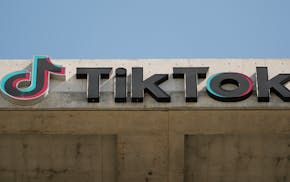Dell Inc. neared an agreement on Monday to sell itself to a group led by its founder and the investment firm Silver Lake for more than $23 billion, people briefed on the matter said, in what would be the biggest buyout since the financial crisis.
If completed, a takeover would be the most ambitious attempt yet by Michael Dell to revive the company that bears his name. Such is the size of the potential deal that Dell has called upon Microsoft, one of his most important business partners, to shore up the proposal with additional financial muscle.
The question will now turn to whether taking the personal computer maker private will accomplish what years of previous turnaround efforts have not.
Final details were being negotiated on Monday evening, and a deal could be announced as soon as Tuesday. Still, last-minute obstacles could cause the talks to collapse, the people briefed on the matter cautioned.
The consortium is expected to pay between $13.50 and $13.75 a share, these people said. Dell is expected to contribute his nearly 16 percent stake to the deal, worth about $3.8 billion under the current set of terms. He is also expected to contribute hundreds of millions of dollars in fresh capital from his own fortune.
Silver Lake, known as one of the biggest investors in technology companies, would likely contribute about $1 billion, these people added. Microsoft is expected to put in about $2 billion, though that would likely come in the form of preferred shares or debt.
Dell is also expected to bring home some of the cash that it holds in offshore accounts to help with the financing.
A spokesman for Dell declined to comment.
For decades, Dell benefited from its status as a pioneer in the market for personal computers. Founded in 1984 in a dormitory room at the University of Texas, the company grew into one of the biggest computer makers in the world, built on the simple premise that customers would flock to customize their machines.
By the late 1990s, its fast-rising stock created a company worth $100 billion and minted a class of "Dellionaires" whose holdings made for big fortunes, at least on paper. Dell amassed a fortune worth an estimated $16 billion and formed a quietly powerful investment firm to manage those riches.
But growing competition has sapped Dell's strength. Rivals like Lenovo and Samsung have made the PC-making business less profitable.
Last month, the market research firm Gartner reported that Dell sold 37.6 million PCs worldwide in 2012, a 12.3 percent drop from the previous year's shipments.
Thai plastics firm will pay $20 million to settle with U.S. over Iran sanctions violations
Biden administration moves to make conservation an equal to industry on US lands
Stock market today: Wall Street limps toward its longest weekly losing streak since September

